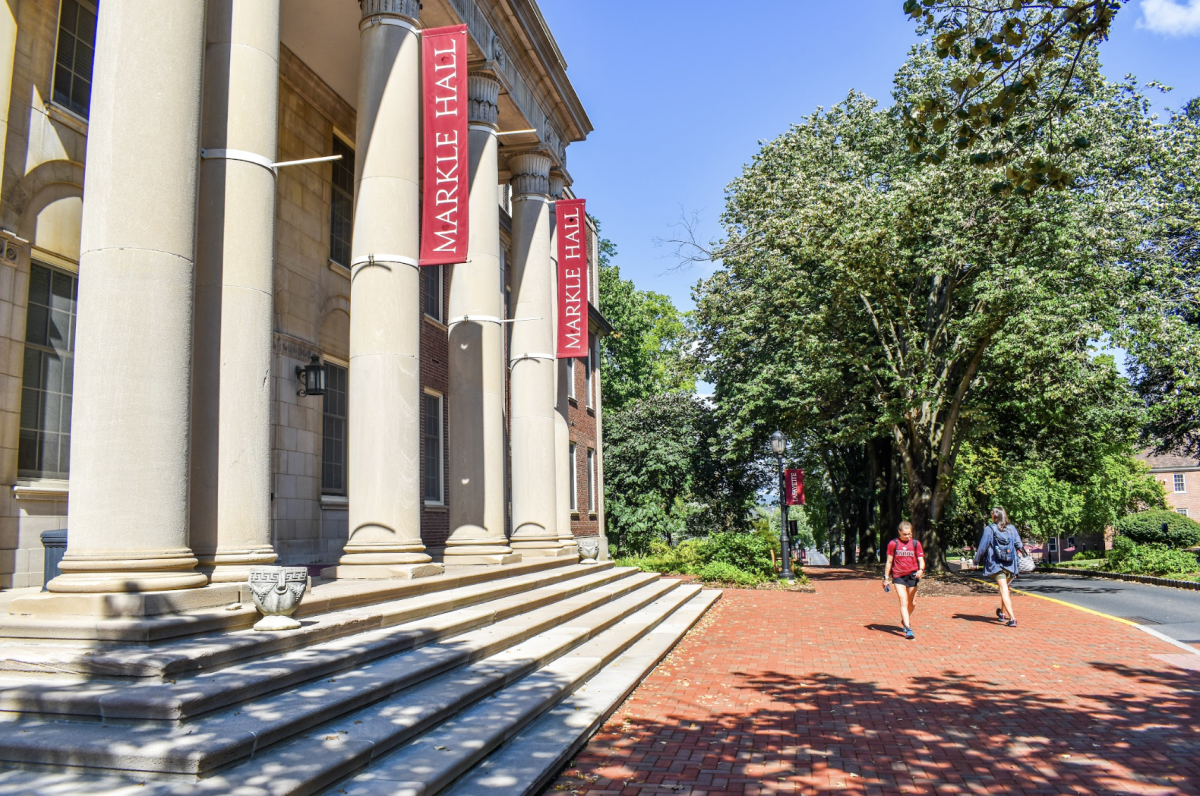Last May, the faculty overwhelmingly voted to restrict student access to course evaluation ratings. No longer will students be able to view these evaluations before making their course selections.
Christopher Reubeck, associate professor of economics and chair of the Faculty Teaching & Learning Committee, was the leading proponent behind the change. In a motion presented to the faculty, the Teaching & Learning Committee, which Reubeck chaired, outlined concerns about how publicly releasing scores could lead to bias and discrimination, as well as contribute to a toxic work environment.
“[The biased nature of student evaluations], combined with the practice of making the numerical values viewable (and even sortable), create a negative work environment for some faculty members … by creating power differentials and unhealthy competition,” the motion read.
The proposal, which passed by a 103-3 margin, included faculty testimony regarding how public course evaluations have harmed them personally. Members of the faculty voiced their support both in writing and in person during the meeting.
“Before voting on Motion 1, there were also about a dozen pre-tenure faculty who stood together as a joint statement in support of the motion [that] was read,” Reubeck wrote in an email.
A second motion, which requires that the Student Affairs Committee investigate alternative ways for students to learn more information about their courses prior to registration, passed by a slimmer margin of 61-36.
The committee also voiced concerns that incomplete, biased information would be harmful to both students and their courses, giving them an inaccurate picture and encouraging them to form prejudices against teachers before classes even began.
Student Government had been in contact with Ruebeck during the proposal process of the course evaluation changes and previously expressed disappointment at the potential decision. In May, Student Government filed its own motion, calling for making some changes to the reports.
To create a compromise, Student Government proposed adding bias disclaimers and asking “specific, precise and probative questions” while keeping course evaluation results open to students until a remedy could be agreed upon. On a vote of 14-1, with two abstentions, a significant majority of the Student Government stood in support.
Trebor Maitin ‘24, parliamentarian of the Student Government, co-wrote the resolution with four other representatives.
“What you have is an information void that can be filled with a lot of hearsay, conjecture and worst of all, Rate My Professors, which is a lot more biased than course evaluations ever was or ever will be,” Maitin said.
While the Faculty Teaching and Learning Committee considered Student Government’s argument, they ultimately felt that trying to avoid systemic issues from course evaluation data was more important.
“Putting the data from our course evaluations online provides a stamp of authority that can legitimize them and make it easy to ignore their problematic nature,” the motion said.
Brian Samble, the dean of students, talked to students who pointed out what they believed to be contradictory logic in the motion.
“Students I’ve spoken with questioned if the evaluation instrument has bias, then why is that tool being used even internally for evaluation decisions?” Samble said.
Samble subsequently mentioned that the Student Government is still working with the faculty to present a permanent solution balancing both information availability and professor anxiety and was not involved in the Faculty Teaching & Learning Committee decision.
Many students have been disheartened by the results of the vote, including Maitin.
“As a student, I did use course evaluations … I came to the personal conclusion that these course evaluations are a lot more reliable, if even they are a bit biased,” Maitin said.
Maitin hopes that changes will be made and that faculty members and students will be able to work together in the future.
“I hope that faculty continues to consider its options with regard to course evaluations, because I think that our goals as students and their goals as faculty are aligned in that we want the most accurate information out there as possible,” Maitin said.
In accordance with the original faculty motion, further action is expected by January 2024.
Disclaimer: Managing Editor Trebor Maitin ’24 did not contribute writing or reporting.




































































































